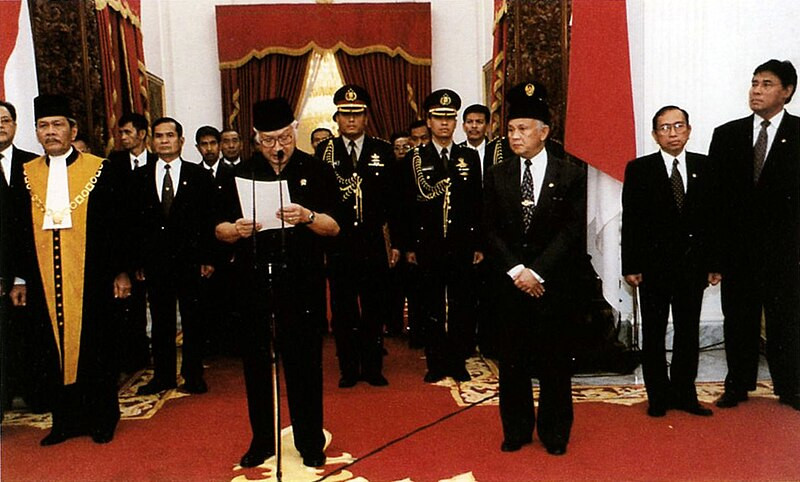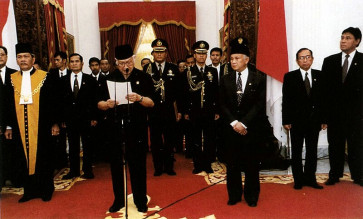Popular Reads
Top Results
Can't find what you're looking for?
View all search resultsPopular Reads
Top Results
Can't find what you're looking for?
View all search resultsSukarno, Soeharto and authoritarian failures in Indonesia
Centralization, which is prone to authoritarianism, may serve as an emergency structure in moments of collapse, but it cannot drive innovation, productivity or global competitiveness.
Change text size
Gift Premium Articles
to Anyone
A
s a geographically fragmented nation with diverse lived experiences, Indonesia seems destined to grapple with recurring cycles of strongman rule.
Centralization, with the military as its enforcer, has long been seen as an expedient fix for elite political dysfunction and regional dissent. President Prabowo Subianto’s early embrace of centralization and military influence suggests a risk of repeating that cycle.
His direction echoes the patterns of Sukarno and Soeharto, both of whom turned to centralization in their pursuit of national unity, only to become authoritarian in the process.
When Sukarno proclaimed independence in 1945 and became Indonesia’s first president, he steered not a unified nation, but a patchwork of Dutch colonial outposts with uneven infrastructure and competing loyalties. His task was monumental: to build a functioning national government and economy that could bind these disparate regions together.
As a charismatic leader steeped in anti-colonial ideals, Sukarno did not initially envision a highly centralized state. With his socialist worldview, he adopted liberal democracy and sought to develop local administrations and councils in Java and other islands.
But the challenges overwhelmed the young republic. Weak domestic capital, limited governance capacity, and a lack of information about islands beyond Java fueled disputes over resource distribution and revenue control between Jakarta and the regions.
Without a capable central government, islands such as Sumatra and Sulawesi grew increasingly dissatisfied with Jakarta, paving the way for rebellions and separatist movements. Darul Islam uprisings in Aceh, Java, South Kalimantan and South Sulawesi and the PRRI/Permesta revolts in Sumatra and Sulawesi became defining symbols of distrust and vulnerability of the country in its early years.



















